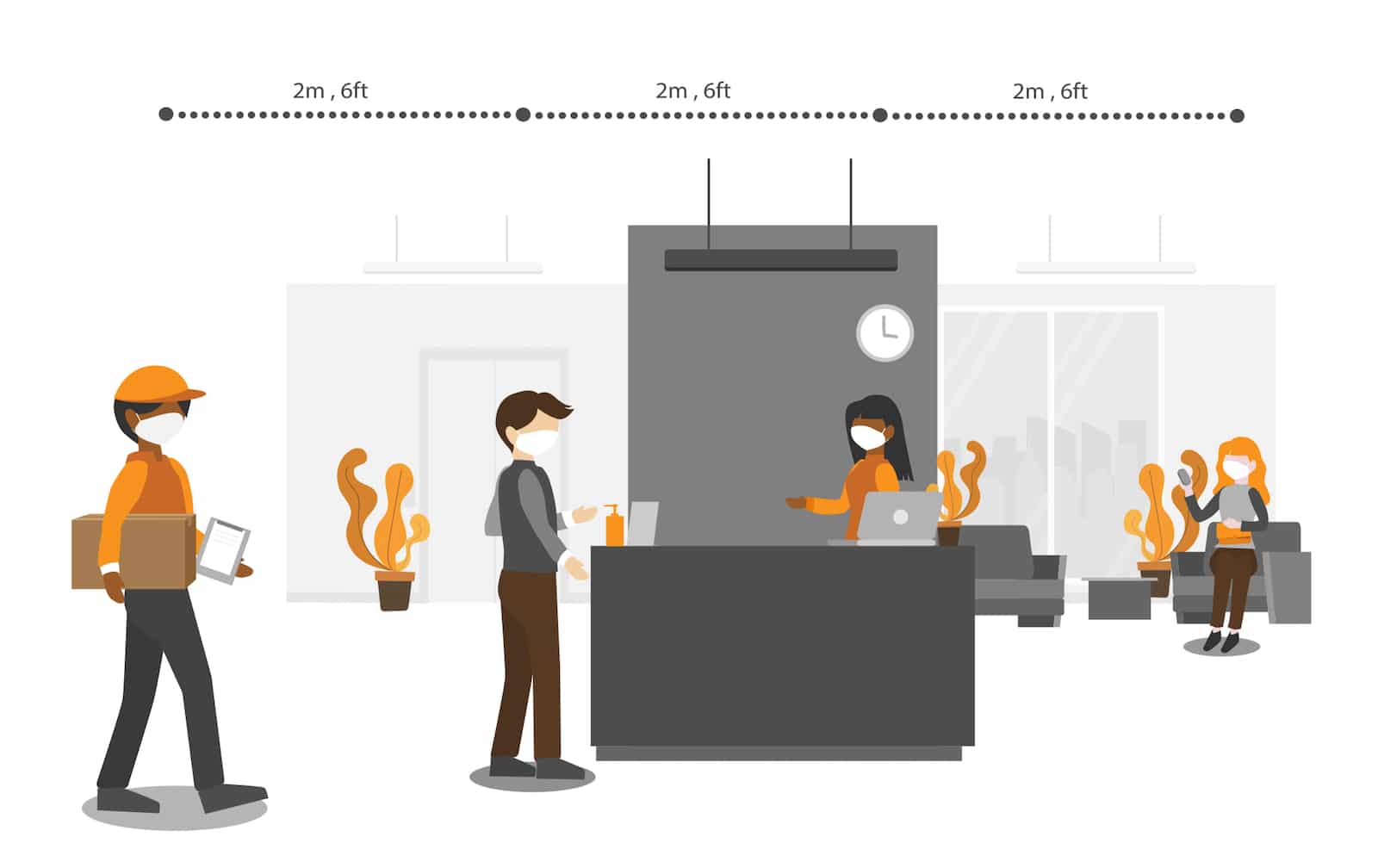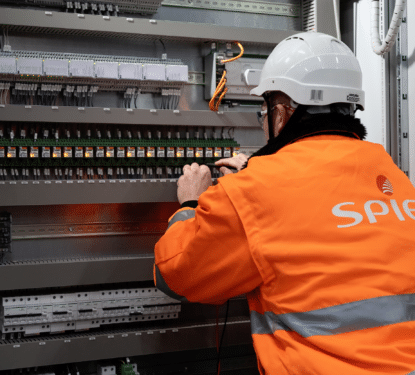Every crisis is different, affecting specific parts of society and specific geographic areas. The COVID-19 pandemic is as global as crises get, but more specifically is has had its greatest impact on our communal indoor environments. Our buildings were the hubs of commercial and social activity across the world before the pandemic but over the last year they have become places of concern, where public health regulation highlights the dangers of people being together. However, every crisis has a beginning and every crisis has an end, each crisis forces changes to overcome the problems they create and build a world that is more resilient for the future.
As 2021 progresses we will gradually return to our commercial buildings in line with the occupancy levels and social distances outlined by public health regulation. This compliance will now become a key driver in the adoption of smart building technology as a range of building systems are step up to the plate with applications that ensure occupant safety while maximizing comfort and productivity as building systems have always done. The dire need for compliance in our buildings could even usher in that era of mass market smart building adoption we have endeavoured to bring about for the decades.
Investment precedes growth and recent investments in systems that support our return to the office brings renewed hope to the industry. There may be no better example of this than last week’s $100 million funding boost for Toronto-based enterprise-focused visitor management software provider iLobby. The impressive level of the startup’s first external investment in the seven years since it’s establishment shows the hope and determination of the sector to adapt the building environment to cope with this extended crisis and the regulation that will last for years to come.
In combination with self sign-in kiosks, ID scanning, and facial recognition, iLobby’s software helps companies track visitors, contractors, employees, and others entering their facilities, essentially replacing traditional pen and paper methods buildings have used. The software provides building owners and operators greater insights into who is in the facility at any given time, and therefore how many people are sharing the space. By monitoring and managing the number of people in a workplace, iLobby can help companies comply with social distancing regulation and even automate contact tracing and reporting if any COVID-19 cases are detected.
“As businesses are starting to reopen, there is an increasing need to not only know who is entering your facilities, but also assess whether they are a potential risk to your workforce,” says iLobby CEO Ariel Mashiyev. “Our enterprise clients have thousands of visitors walking through their doors each week, so we have worked closely with them to develop this solution as a first line of defense to reduce risks to their business operations. This care for our customers has helped drive our retention into the high 90s, and is validated through strong satisfaction metrics and customer expansion.”
iLobby also offers a range other of automated tools, such as mail management, where computer vision is used to streamline incoming and outgoing letters and packages. Reception or mailroom staff can simply take a photo of the label on each piece of mail using the app, which then automatically matches the photo to the recipient and sends an alert. However, in this age of coronavirus and health regulation the company’s core focus has been in the visitor management realm, where it allows companies to track and manage everyone who enters and leaves a facility, from employees to contractors, couriers and guests.

The company is already profitable with a client portfolio including Boeing, FedEx, Hershey, Pepsi, Nikon, Pearson International Airport, Scotia Bank, and LG. “We want to be what CLEAR is to airports,” said Ryan Hinkle, managing director at lead investors, Insight Partners. This highlights the growing need for every large building to find that combination of high secuirty and ease-of-entry, while also maintaining visitor security, as we see in our busy airport complexes.
In fact, it has become clear that building security systems will be a crucial element for large commercial buildings hoping to comply with public health regulation while maintaining a functional business environment. Our Q4 2019 report discusses the global market for physical security products going forward to 2025 based on two scenarios. With ongoing outbreaks of the virus forcing several countries to enforce rolling lockdowns, our 2nd scenario, where global markets return to some kind of normality within a year and mass global adoption of a vaccine is achieved within 18 months, has the greatest probability.
“The pandemic has created demand for new solutions to help control the spread of the virus. Physical security products have risen to the challenge, helping to implement social distancing protocols through existing access and video analytics systems. Thermal cameras have also been deployed to measure people’s temperature, with demand being strong,” explains the 12th edition of comprehensive security market report. “We are still confident of the industries robustness and prospects for growth over the medium to long term. Market drivers like the threat from terrorism and crime are unlikely to abate, whilst urbanization and smart infrastructure will further drive demand for more and better security systems.”
This month’s substantial investment in iLobby ($100m), in addition to significant recent funding rounds for competitors like Envoy ($43m), Proxyclick ($15m), and Traction Guest ($17m), reflect the ongoing change in the buildings industry. However, the adoption of visitor management software is more than just a temporary virus mitigation and crisis-regulation compliance effort, as the integration of such systems will long out-live the pandemic. When the dust settles on this extended global crisis, our commercial real estate will find itself with a range of smart systems that can shift the building’s attention back to the occupant comfort, security, and productivity goals they have long strived to achieve.
These investment trends suggest that today’s survival strategy will create the platform for tomorrow’s smart building generation.



